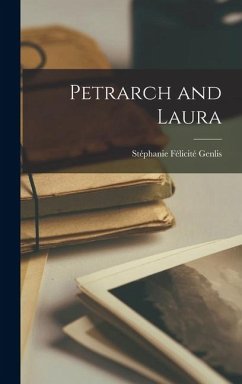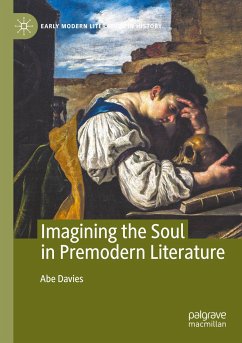Nicht lieferbar
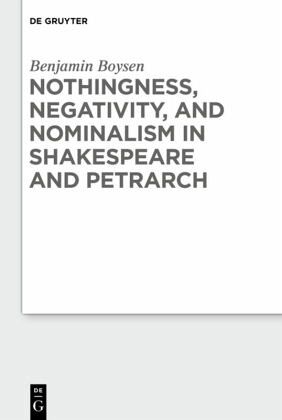
Nothingness, Negativity, and Nominalism in Shakespeare and Petrarch
Being exposed to the Nominalist expansion in early modernity, Petrarch and Shakespeare are highly preoccupied with a Nominalist dimension of language and representation.Against this background, the study shows how these Renaissance poets advanced a special notion of subjectivity and identity as rooted in negativity, otherness, and representation.The book thus argues for a new understanding of negative modes of subjectivity in Petrarch and Shakespeare. A new and sharpened understanding emerging from an interpretation of Francesco Petrarch's notion of exile and of love in his great poetical cycl...
Being exposed to the Nominalist expansion in early modernity, Petrarch and Shakespeare are highly preoccupied with a Nominalist dimension of language and representation.
Against this background, the study shows how these Renaissance poets advanced a special notion of subjectivity and identity as rooted in negativity, otherness, and representation.
The book thus argues for a new understanding of negative modes of subjectivity in Petrarch and Shakespeare. A new and sharpened understanding emerging from an interpretation of Francesco Petrarch's notion of exile and of love in his great poetical cycle Rerum vulgarium fragmenta as well as a meticulous examination of the concept of nothingness in William Shakespeare's works.
Petrarch and Shakespeare poetically show how identity is alien and decentred - yet also free and expanding. In other words, these poets illustrate how subjectivity is constituted by heterogeneity. Moreover, pointing to other examples of this negative subjectivity in Renaissance philosophy and poetry, the study suggests that these models for subjectivity could be extended to other early modern writers.
Against this background, the study shows how these Renaissance poets advanced a special notion of subjectivity and identity as rooted in negativity, otherness, and representation.
The book thus argues for a new understanding of negative modes of subjectivity in Petrarch and Shakespeare. A new and sharpened understanding emerging from an interpretation of Francesco Petrarch's notion of exile and of love in his great poetical cycle Rerum vulgarium fragmenta as well as a meticulous examination of the concept of nothingness in William Shakespeare's works.
Petrarch and Shakespeare poetically show how identity is alien and decentred - yet also free and expanding. In other words, these poets illustrate how subjectivity is constituted by heterogeneity. Moreover, pointing to other examples of this negative subjectivity in Renaissance philosophy and poetry, the study suggests that these models for subjectivity could be extended to other early modern writers.





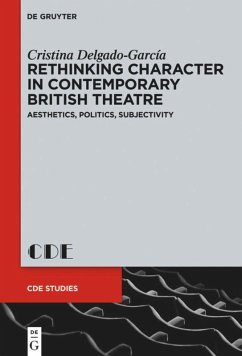
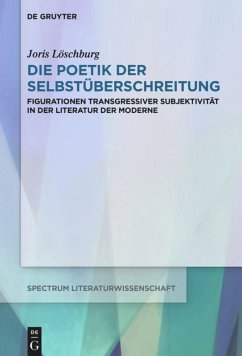


![The Life of Petrarch, Collected [By S. Dobson] From Mémoires Pour La Vie De Petrarch [Sic, of J.F.P.a. De Sade] Cover The Life of Petrarch, Collected [By S. Dobson] From Mémoires Pour La Vie De Petrarch [Sic, of J.F.P.a. De Sade]](https://bilder.buecher.de/produkte/67/67013/67013819n.jpg)

